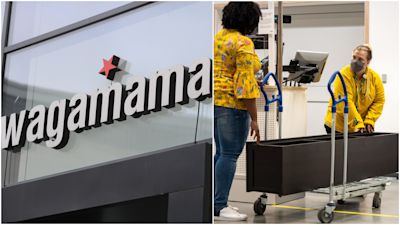Consumer: Ikea facing mattress shortages and Wagamama struggles to recruit chefs

Ikea has said it is struggling to meet high demand for some of its products, especially mattresses, as the head of Wagamama has revealed it is struggling to fill chef vacancies.
The Swedish furniture giant said it had been hit by issues in its supply chain, caused by a series of simultaneous challenges.
“Like many retailers, we are experiencing ongoing challenges with our supply chains due to Covid-19 and labour shortages, with transport, raw materials and sourcing all impacted,” Ikea said.
It added: “In addition, we are seeing higher customer demand as more people are spending more time at home.”
It added: “As a result, we are experiencing low availability in some of our ranges, including mattresses.
“We hope this will reduce as the situation improves in the coming weeks and months.
“Going forward, we’re constantly looking for more opportunities to secure product availability for our customers and apologise for any inconvenience this may cause.”
Popular Pan-Asian chain Wagamama has also revealed it is experiencing difficulties - specifically in hiring chefs across a fifth of its restaurants, as the sector strains amid a “perfect storm” of supply chain woes and staff shortages.
The group’s recently appointed chief executive Thomas Heier said he was struggling to fill chef vacancies in around 30 sites.
He said Brexit was impacting the number of European workers looking for jobs in the UK, but also blamed tough competition in the recruitment market as logistics firms are resorting to wage hikes and steep cash bonuses to help plug lorry and delivery driver shortages.
Mr Heier said: “We’ve seen a reduction in our EU workforce in particular, but the other thing we’re seeing is increased competition from logistics and delivery firms who are struggling with an increased number of vacancies”.
It also comes as demand for workers has surged across the hospitality sector due to booming business following the lifting of coronavirus restrictions and with Britons staycationing due to the pandemic, according to the firm’s boss.
He said the seasonally quiet month of August saw sales on a par with peak trading levels normally seen in the autumn.
“It’s a perfect storm of higher than normal demand, with supply chain challenges in the mix and a shortage of staff on the logistics side”, said Mr Heier.
He said while Wagamama has not been in a position where it is desperately short of chefs or ingredients, it has felt the pressure like many of its rivals.
And he warned it could lead to rising food prices as the supply chain crisis mounts.
“I don’t think we or anyone else are out of the water yet,” he said.
Many companies have said in recent weeks that they are struggling to fill shelves and meet demand from customers coming out of lockdown.
A historic shortage of lorry drivers has been exacerbated by the Covid-19 pandemic. According to one estimate, 30,000 driving licence tests for heavy goods vehicles did not take place last year due to social distancing.
Before the pandemic, the UK already had a shortfall of 60,000 drivers. This has now risen to around 100,000.
A company which bottles Coca-Cola said last week it is facing aluminium can shortages. Pub chain Wetherspoon said it was running short of some beers in some pubs, and Nando’s closed some of its restaurants amid shortages.
Yet according to the closely followed Purchasing Managers’ Index, the UK manufacturing sector beat expectations last month, and is growing strongly.
Last week British Retail Consortium (BRC) director of food and sustainability Andrew Opie said that while Christmas will be challenging this year, it is too early to be predicting food shortages over the period.
The lorry driver shortage has seen big firms such as Tesco and Asda offering £1,000 starting bonuses for new recruits, while Amazon is also offering £1,000 “golden hellos” to attract new warehouse workers amid soaring demand for online shopping.
Rocketing demand for workers saw 193,000 new job adverts posted in the week to August 29 alone, according to the Recruitment & Employment Confederation (REC).